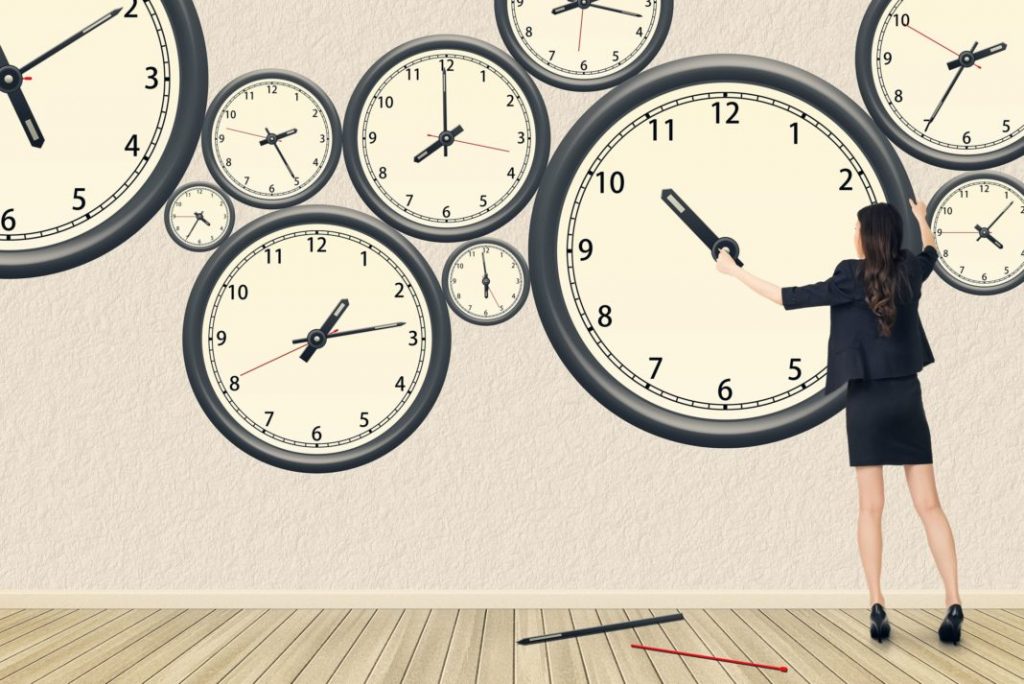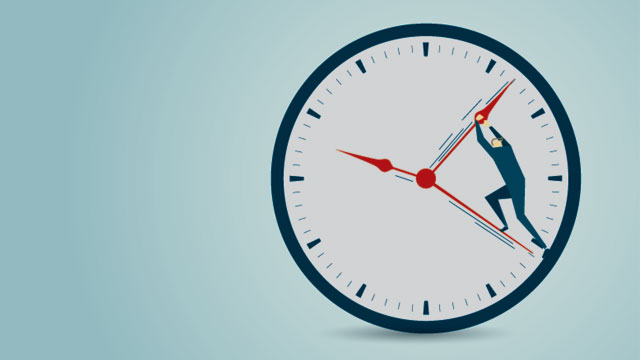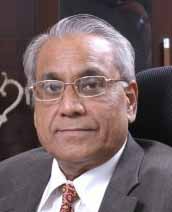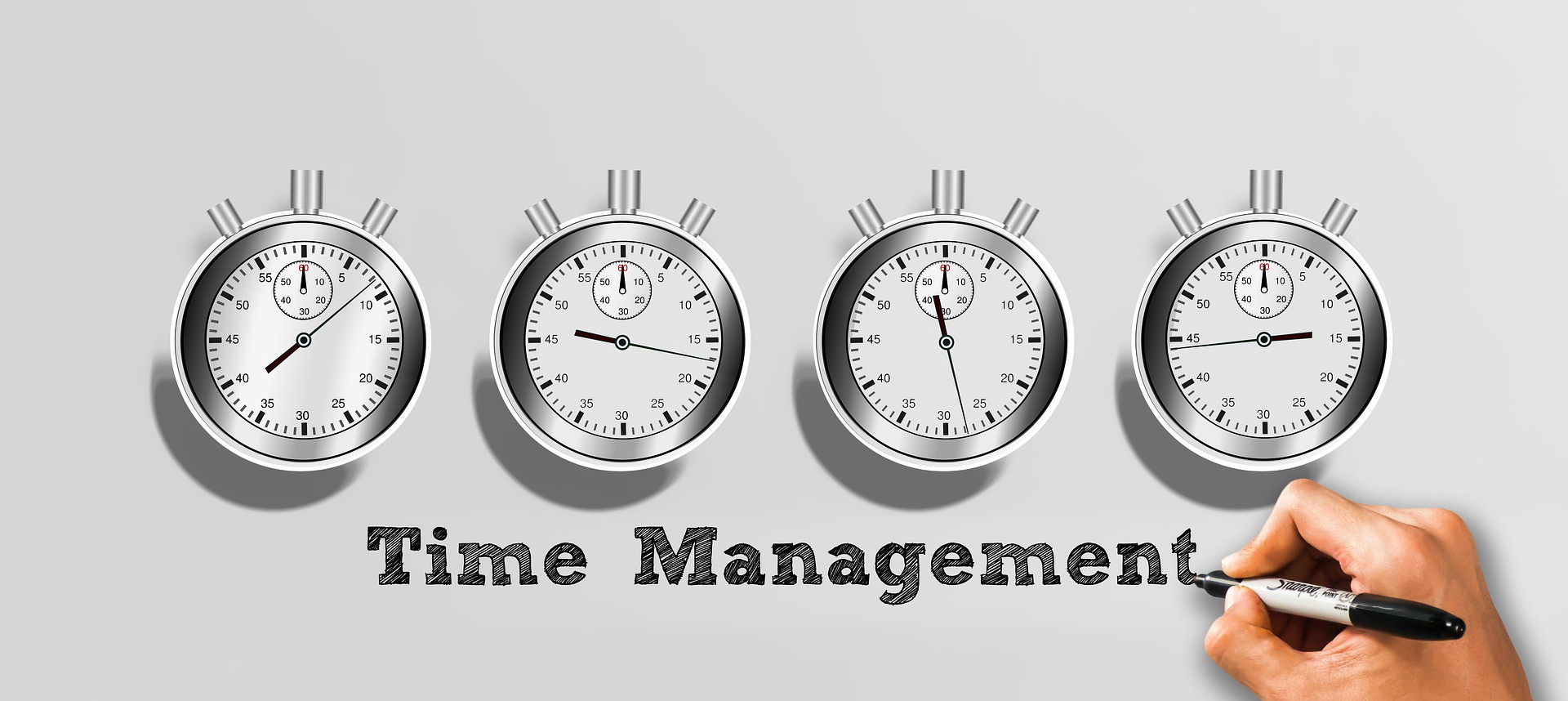Time Management for higher Performance.
Time management is basically managing activities within given frame of Time. It is a set of related common-sense skills that helps to use time in the most effective and productive way possible. Dr Peter F. Drucker, a well known Management Guru says “The output limits of any process are set by the most critical resource Time. Time unless it is managed, nothing else can be managed.
SHAKESPEARE in his one of the Couplets says;

” WHEN I WAS A BABY, WEPT AND SLEPT, TIME CREPT
WHEN I WAS A BOY, LAUGHED AND TALKED, TIME WALKED
WHEN THE YEARS SAW ME AS A MAN, TIME RAN.
WHEN I GREW OLDER, THE TIME FLEW “
Unfortunately, we have become slaves to our time, rather than Masters of Our Time. Time Management is a skills through which one can learn to:
• Determine which of the things you do are important, and which can be dropped
• Use your time in the most effective way possible
• Increase the time in which you can work
• Control the distractions that waste your time and break your flow
• Increase your effectiveness and reduce stress
By becoming more effective in the use of working time, one can reduce stress by:
• Being more in control of what you do
• Being productive, and secure in your job because of this
• Enjoying what you do
• Giving yourself more quality time to relax and enjoy life outside work.
The Central Shift in Attitude in “Time Management”
At the heart of the subject is a simple, but obvious, shift in focus:
Concentrate on results, not on being busy.
Many people spend their days in a frenzy of activity, but achieve very little because they are not concentrating on the right things.
This is neatly summed up in the Pareto Principle*, or the 80/20 rule. This states that typically 80% of unfocussed effort generates only 20% of results, and that the remaining 80% of results are achieved with only 20% of the effort. By applying time management, including planning, we aim to change this to ensure that we concentrate as much of our effort as possible on the high payoff tasks. This ensures that we achieve the greatest payoff possible with our investment of time.
Why don’t people manage their time?
Despite the benefits of time management, many people do not use it. This can be because:
• They don’t know about it
• They are too lazy to plan
• They enjoy the adrenaline buzz of meeting tight deadlines
• They enjoy crisis management
The problem with crisis management and tight deadlines is that while they can be fun, often they can lead to high levels of stress, a disrupted private life, tiredness and, occasionally, to failure of projects.
Mind Tools Time Management.

Time management shows you how use your time in the most effective way possible.
It concentrates on the following ‘how to’ areas:
• Evaluating your use of time
• Focusing on your priorities
• Planning for effective use of time
• Using time more effectively
• Creating more time
• Avoiding distractions
Tools of Time Management
• The Activity Log
• Delegation
• SWOT
• Reading Skills
• Writing Skills
• Phone Skills
• Prioritised To Do
• Time assessment, and
• PERT
How do you spend your day ?
Memory is a very poor guide when it comes to assessing how you spend your time – it is too easy to forget time spent talking to colleagues, making coffee, eating lunch, etc. It can also function poorly when you are at a low ebb during the day.
You may also be unaware that your energy levels may vary through the day – most people function at different levels of effectiveness at different times. This may be caused by the amount of sugar in their blood, the length of time since they took a break, routine distractions, stress, discomfort, etc.
How to use an Activity Log to find out.
A revealing technique is to keep an Activity Log for several days. Without modifying your behavior, note down the things you do as you do them, from the moment you start working. Every time you change activities, whether opening mail, working, making coffee, dealing with colleagues, gossiping, going to collect paper from a printer, etc., note down the time of the change.
As well as noting activities, it is worth noting how you feel, whether alert, flat, tired, energetic, etc. This should be done periodically throughout the day.Analyzing your log Once you have logged your time for several days, analyse the log. You may be alarmed to see the length of time you spend opening mail, talking to colleagues, dealing with disruptions, or doing low value jobs!
Safety Management in Organisations(Opens in a new browser tab)
You may also see that you are energetic in some parts of the day, and flat in other parts. A lot of this can depend on the rest breaks you take, the times and amounts you eat, and quality of your nutrition. The activity log gives you some basis for experimenting with these variables.
How should you use your time?
An important part of focusing on results is working out what to focus on! Many people work very hard all day doing little jobs that do not actually affect the quality of the work they do.
This section concentrates on three areas – clarifying what you enjoy, working out what your strengths and weaknesses are, and working out both what your job is and what constitutes excellent performance.
What would you like to spend your time on?

It is important for your own quality of life that you enjoy your job. If you know broadly what you like and dislike, you will be more able to move your job towards doing things that you enjoy. This is important as you are much more likely to do a job efficiently and effectively if you enjoy it than if you loathe it.
What do you do well?
It is important to know what your talents and weaknesses are. A good way of doing this is to carry out a SWOT analysis. This provides a formal approach to evaluating your strengths and weaknesses, and the opportunities and threats that you face.
Job Clarification…
One excellent way of ensuring that you concentrate on the right things is to agree them with your boss!
You should ask the following questions:
• What is the purpose of the job?
• If possible this should be expressed in a single sentence starting with the word ‘To..’ – e.g. ‘To ensure effective distribution in the South East’
• What are the measures of success?
• Work out how he will be deciding whether you are good at your job or not.
Find out what the key targets to be achieved are, and how they will be measured.
• What is exceptional performance?
• Find out what this is considered to be, and work out how to achieve it.
• What are the priorities and deadlines?
• So that when work builds up you know what to focus on.
• What resources are available?
• This ensures that you are using all the tools at your command.
• What costs are acceptable?
• This lets you know the boundaries within which you can move.
• How does this relate to other people?
• What is the broader picture within which you have to work?

Getting answers to these questions and referring to them frequently should help to ensure that you do your job in precisely the right way. You know what exceptional performance is, and will be able to plan to achieve it using all the resources available, within the correct bounds.
Getting the most out of meetings.
Meetings can be effective ways of sharing information or reaching a decision. They can, however, be ineffectively run in a way that swallows up your time without giving a sufficient benefit.
Just as jobs that you do have a cost, the meetings that you attend have a cost, not only of your time but also that of the other attendees. You should ask yourself whether the benefit of the meeting has been worth the time invested in both the meeting and the preparation for it. Was your contribution worth your investment?
This section explains how to run a meeting in the most effective way possible, and then how to get the most out of meetings that you attend.
Running Meetings.
.This section gives a series of recommendations that should help you to run effective meetings
- Hold meetings only when trigger events occur
Regular meetings are often little more than a security blanket, where the convenor feels vaguely that ‘it is a good thing to communicate’ with only vague ideas what to communicate about. Time is routinely made available for discussion, so discussion will expand to fill it whether this is cost-effective or not.
In many cases it is much more effective to agree to hold meetings only when specific trigger events show them to be necessary. As an example, a manager may propose a meeting when he or she projects that resource difficulties may be encountered, and needs a decision on how to handle this.
By scheduling meetings to occur on trigger events, you can ensures that time is invested in the solution of a problem only when it is needed. - Use the Agenda Effectively
The agenda of the meeting shows the aim of the meeting, and points of discussion in priority order – effectively it is a To Do List for the meeting.
Using an agenda helps to focus the meeting, stopping it drifting off-topic. If you circulate it sufficiently far in advance, it allows people to prepare fully for the meeting so the meeting does not stall for lack of information.
Where many people are to attend the meeting, it may be beneficial for a small expert subcommittee to meet to prepare the agenda. - Setting the time of the meeting
You can usefully change the timing of the meeting depending on the habits of the attendees:
• Where people tend to waffle excessively, you can schedule the meeting just before lunch or going home. This gives people an incentive to be brief
• Alternatively where other people are time conscious, writing the cost per minute of the meeting on a flip chart can have a focusing effect.
• Where people tend to turn up late, start a meeting at an unusual time, e.g. 19 minutes past the hour. This seems to improve punctuality.
• If possible, ensure that the meeting starts on time – where it starts late, time of all the attendees is being wasted waiting for the start. If late-comers are not critically needed, start without them. - Other Useful Techniques
These points can also improve the effectiveness of a meeting:
• You should only bring the minimum number of attendees to a meeting – the more people are present, the more will want to air their views. Similarly, bringing people who are not needed to a meeting wastes their time.
• Ensure that decisions taken at previous meetings have been acted on. This ensures that the meeting will not just be seen as a ‘talking-shop’.
• At the end of the meeting, summarise the points discussed, and make an action plan out of the decisions taken. This ensures that everyone understands what has been decided, and who will do what.
Attending Meetings
When you attend a meeting, ensure that you do not waste other people’s time. To this end, you should be:
• on time, and present only if needed
• well prepared and briefed on your contribution
• attentive to the discussion so that your contribution does not repeat someone else’s
• involved in the discussion
• and brief, relevant, focused and courteous in your interventions.
Meetings can be effective ways of reaching decisions, however they can also be huge wastes of time. When you invest time in a meeting, you should expect a sufficiently large pay-back to justify that investment.
If you are running a meeting, use an agenda to focus discussion. Use the time set for the meeting as a tool for getting around bad habits of attendees if necessary. Summarizing the meeting with an action plan ensures that everyone knows what has been decided.
If you are attending a meeting, ensure that you respect the time of other attendees by being well prepared, attentive and concise.
Using Waiting Time Effectively.
If you need to travel to meet people often, or need to liaise with people who have a highly structured day, you may find that you spend a certain amount of time waiting. This is time that is often wasted. Similarly if you have to be present for an appointment at a specific time, you may have to leave a large amount of contingency time. If your journey goes well you may have to spend a lot of time waiting at the other end.
Unfortunately some idiots may also play power games with you by keeping you waiting to try to gain advantage. Good use of waiting time can help to reduce the advantage.
The following points can help you to use waiting time effectively:
• Confirm the appointment the day before. This reminds people that you will be coming where you have arranged it many days in advance.
• Try not to arrive at the site of the meeting more than 5 minutes early. Doing so gives the impression that you have time to waste.
• Try to leave arrival times approximate. This gives some margin of error should you be held up, and means that you can set out for the meeting later.
• While you are waiting keep busy – not only do you get more work done, it also looks better.
• If people keep you waiting more than 15 minutes they may be playing power games. If you can afford to leave after 15 minutes, tell your contact’s PA that you are about to leave. This gives the contact a chance to come out to meet you or explain the delay. If he doesn’t, leave. If you can’t afford to leave after 15 minutes, then keep working!
Improving the quality of your time
It is important for you to understand that you function at different levels of effectiveness at different times of the day.
If you have kept an activity log for a number of days, you may see that a pattern emerges of times when you think clearly and effectively and shift a lot of work. There may be other times of the day when you feel flat and tired. You may find that the quality of your work suffers during the less energetic part of the day.
You can use this information to schedule work. Important work or activities that need creativity and intelligence should be scheduled for the time when you are most alert. Routine or mundane tasks should be carried out during the periods of low energy.
Eating Patterns, Rest and Energy
You may find that your energy levels throughout the day are driven by your eating patterns. Having a good breakfast with plenty of carbohydrate will keep your brain supplied with sugars for the early part of the day. You may find that these sugars fade sharply by mid-morning as your body reacts to high levels of sugar by burning it faster, and then finds the supplies running down. Some people find it useful to have a mid-morning snack to avoid this. Other people recommend eating protein (e.g. an egg) at breakfast. This seems to delay the energy dip.
On the other hand, eating a large lunch seems to divert blood from your brain to digestion – you have probably felt the desire to go to sleep after a heavy meal. This will be much worse if you drink alcohol at lunch. Alcohol is a sedative. You may also find that energy levels are dependent on whether you take rest periods or not. If you work through the day with no breaks, you may find that you fade badly during the end of the afternoon. Often taking a lunch break will allow you to start the afternoon refreshed for quality work.
With intelligent eating and adequate breaks you may find that you can extend the amount of quality time available to you in a day quite significantly.
Try experimenting with different eating and rest patterns to see which ones suit the way you work. It is worth trying each approach for a few days before trying another to make the experiment more reliable, as this helps to minimise the effect of random events.
Good time management is one of the core differences between effective and ineffective people. At the heart of good time management is the shift of focus of concentrating on results, not on being busy.
We started looking at your use of time management by:
• Using an activity log to evaluate your use of time, and your energy levels at different times of the day.
• Knowing how much your time is worth, and hence which tasks should be avoided, dropped or delegated.
• Determining and agreeing what is important for success in your job, and what constitutes exceptional performance
• Setting the goals and plans that will lead you to that success
We then looked at ways in which you could use your time most effectively by:
• Doing important work in quality time,
• Eating properly and resting effectively so that you spend more time performing well,
• Running and attending meetings effectively,
• Using time spent waiting,
• Using traveling time effectively,
• Improving reading skills,
• Dropping unwanted tasks, and
• Using delay effectively.
We saw how we could create more time by:
• Delegating Effectively,
• and Getting up early!
And then looked at controlling the distractions that interfere with effective work by:
• Getting rid of unwanted jobs,
• Blocking unwanted visitors
• Letting people know when you do not want to be disturbed, and
• Handling phone calls effectively
By effective use of these basic skills, you can ensure that:
• you are successful in your job, as you know exactly what is expected of you, and concentrate explicitly on those things
• you can become more in control of what you do
• you are productive and therefore secure in your job
• you can plan and move into job areas that you enjoy
• and that you can avoid staying late at work, giving yourself more quality time to relax and enjoy life outside work.

Director,
Greater Noida Productivity Council
Frm Director & Head, National Productivity Council, GOI
rdmishra1234@gmail.com




